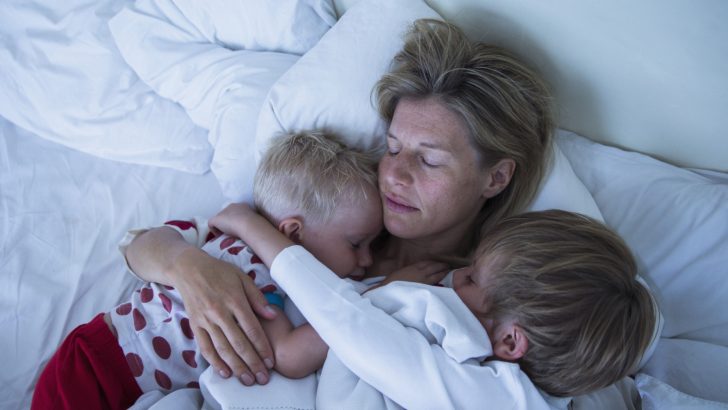Dr Louise Jane Clarke
As a psychologist, I encourage all parents to be mindful of their health to prevent stress and burnout. Although being a new parent is a wonderful experience for many, it can leave some parents vulnerable to exhaustion and feeling overwhelmed. However, finding time to take care of yourself is crucial to preventing parental burnout as well as maintaining inner emotional balance and harmony among the family unit. It is essential to hold in mind that you are important and that if you don’t take care of yourself, then it will be hard to take care of your loved ones.
Warning signs
You may be experiencing stress and burnout if you are feeling:
- Restless
- Frustrated
- On-going irritability
- Withdrawal or emotional detachment from your partner or children
- Fast breathing
- Ongoing fatigue
- Lack of enjoyment
Here are some tips to prevent parental exhaustion:
1. Protected self-care time
Set time aside for your needs. Make time for yourself whether it is going for a short walk, having a bath, visiting a friend or having your own space, even if it just for a few minutes a day. Ensure to protect this time and make it a priority.
2. Regular exercise
The benefits of exercise are important for both physical and mental health. Exercise releases good hormone and prevents depression.
3. Communication
Do not be afraid to ask for help. Reach out to friends and family for support. Communicating your feelings shows great strength and in return you get the support and connection that is vital to prevent burnout and increase wellbeing.
4. Avoid comparisons
If you want to be happy, stop comparing yourself. Theodore Roosevelt once said “Comparison is the thief of joy”. It is very hard to compare ourselves to others as everyone is different and it only adds to pressure, stress, feelings of inadequacy and most importantly takes away the great work that you do as a parent.
5. Do what works for you
No one is perfect. If you notice you are putting added pressure on yourself to be the ‘perfect parent’, try to let this go. Do what works for you and try not to engage in worry about what others think.
6. Breathe
Connect with your breath as a way of regulating emotions and connecting to the present moment. The breath provides a place of calm, clarity and focus which in turn helps us to respond effectively to stress as opposed to reacting to stressful situations.
7. Find nourishment
Make a list of what is nourishing for you and commit to building on it. Hold in mind food, exercise, relaxation etc. Areas of depletion can often be working when the children go to bed, going to bed late, mindless internet use in your spare time and isolation. These areas of depletion all contribute to stress and an active mind. Take steps to letting go of what is not healthy for you and build on areas of nourishment.
8. Be kind to yourself
Be compassionate towards yourself. Rather than criticise yourself, show compassion and recognise that you are fallible. Too much criticism can often lead to low-self esteem, irritability and eventually burnout. What would you say to a friend if they were feeling the same? More than likely you would be compassionate and realistic. Apply this same advice to yourself.
9. Be mindful
Mindfulness contributes to a sense of inner peace, well being, stability and calm. Establishing a daily mindfulness practice is key to self-care and parenthood as it allows us to be present, awake, aware and connected to ourselves and our loved ones. Mindfulness resources can be widely accessed via online, books or by attending an eight-week group for mindful parenting or mindfulness for stress reduction.
10. Nights out
Time out for connection with others is important. Parenting can be isolating therefore make time to see your friends. It is also important to look after your relationship and have ‘date nights’. This will help increase communication, teamwork and most importantly keep the spark in the relationship! Arrange a babysitter and stay present when you are away from your children and connecting with friends. This will contribute towards healthy relationships as well as reducing stress and burnout.
*Dr Louise Jane Clarke is a Registered Psychologist, Consultant and Chartered Psychologist based at The Consulting Clinic, (www.theconsultingclinic.ie). This article is from www.first1000days.ie a site by Danone Early Life Nutrition, the leading infant nutrition company in Ireland, which offers tips on nutrition throughout pregnancy, during babies first year of life, when breastfeeding and on toddler nutriti



